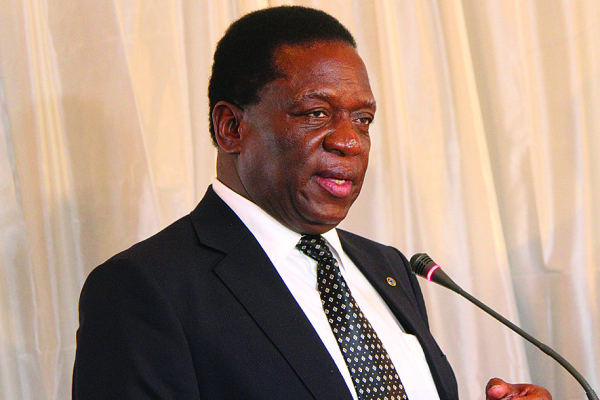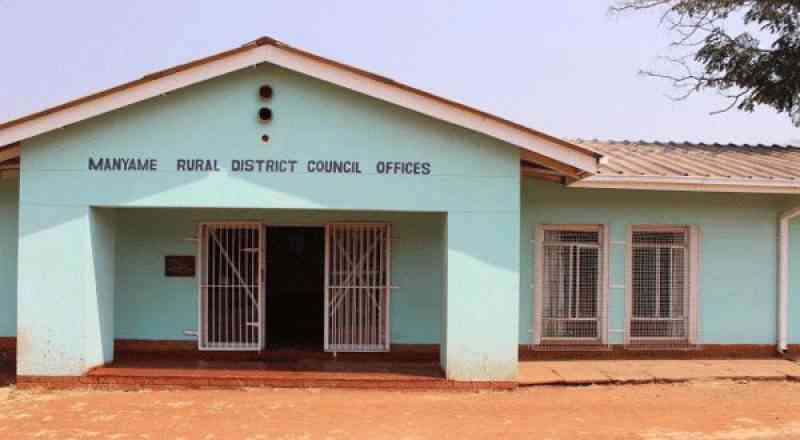
PRESIDENT Emmerson Mnangagwa is in a catch-22 situation over whether to implement recommendations of the commission of inquiry into the August 1 post-election violence, which urged him to engage opposition MDC leader Nelson Chamisa to move the country forward.
BY BLESSED MHLANGA
But going against his Zanu PF party, which has no interest of engaging in the talks seen as crucial to reviving the country’s faltering economy, is an elephant in the room.
Highly-placed sources in both government and Zanu PF told NewsDay that Mnangagwa was now in a fix after promising to implement recommendations of the commission, which was chaired by former South African President Kgalema Motlanthe, which the Zimbabwean leader set up after members of the military and police killed six civilians during the protests, according to the commission’s report.
Zimbabwe held elections on July 30 last year to replace long-time ruler Robert Mugabe, seen as crucial to reopening the country to international re-engagement.
The poll, however, exposed deep polarisation that culminated in the post-election protests.
With the economy on a downward spiral characterised by shortages of cash, fuel, frequent price increases and rising inflation, the commission and the international community urged dialogue between Mnangagwa and his main rival, Chamisa.
A source, speaking on condition of anonymity, said there were a number of sticky recommendations that Mnangagwa would find difficult to implement, chief among them bringing to book soldiers who shot and killed the six civilians and sitting down for talks with Chamisa.
- Chamisa under fire over US$120K donation
- Mavhunga puts DeMbare into Chibuku quarterfinals
- Pension funds bet on Cabora Bassa oilfields
- Councils defy govt fire tender directive
Keep Reading
“During the December Zanu PF annual conference in Esigodini, it was made clear that the ruling party would not sit down with Chamisa for any talks because he had disrespected Vice-President Constatino Chiwenga,” the source said.
“Hardliners in the party want the President to respect that position. But remember, Mnangagwa promised to implement the Motlanthe commission recommendations and the international community will be watching.”
Part of the commission’s recommendations read: “The commission recommends the establishment of a multi-party reconciliation initiative, including youth representatives, with national and international mediation to address the root causes of the post-election violence and to identify and implement strategies for reducing tensions, promoting common understandings of political campaigning, combating criminality, and uplifting communities.”
Zanu PF secretary for legal affairs, Munyaradzi Paul Mangwana said his party was open for talks with the MDC, but would only do so if Chamisa came knocking.
“The big brother will not go to the younger brother. It’s the other way round. We have always been open. We will talk to Zimbabweans who think they have something to offer. We are open, but we will not accost them to talk,” Mangwana said.
Chamisa said he was also waiting on Mnangagwa after tabling five issues his MDC party wanted discussed, including his legitimacy as President.
“It’s a pity that my comrade and compatriot ED Mnangagwa is talking about international engagement,” Chamisa told NewsDay.
“But you can’t build a roof without a foundation. A foundation is the national engagement, the roof is international engagement. You can’t speak to the world and talk about re-engagement when you can’t re-engage in your own country and there is no national dialogue. It’s a pity and it’s actually getting things upside down. It would never work, what is required is to have a national alignment process. Let people discuss the issues affecting Zimbabwe first. Let’s close the chapter of a disputed election first and say what is the way forward under these circumstances.”
On the military, the commission said the soldiers responsible for gunning down civilians should be brought to book.
“Those particular members of the military and the police found to have been in breach of their professional duties and discipline on August 1, 2018 should be identified as soon as possible for internal investigations and appropriate sanction, which should include a hearing from the victims and their families for impact assessment and to provide the necessary compensation,” the report reads.
But sources said the Zanu PF leaders, who came into power on the back of a military coup in November 2017, would not want to disenfranchise their power base and bringing to book the military officials would send a wrong signal.
Just before the commission’s report and findings were made public, Mnangagwa promoted the commander of the National Reactional Force, Brigadier-General Anselem Nhamo Sanyatwe to Major General.
Our sister paper, the Zimbabwe Independent, last month reported that while Mnangagwa ruled out talks and a power-sharing arrangement with Chamisa’s MDC-Alliance on the basis that Zanu PF won a two-thirds majority in the July general elections, dialogue was unfolding behind-the-scenes, facilitated by prominent former Kenyan chief justice Willy Mutunga.
The paper said Mutunga arrived in the country before Christmas and met senior MDC officials, including Chamisa, and has been secretly coming to Zimbabwe for the talks since August.











